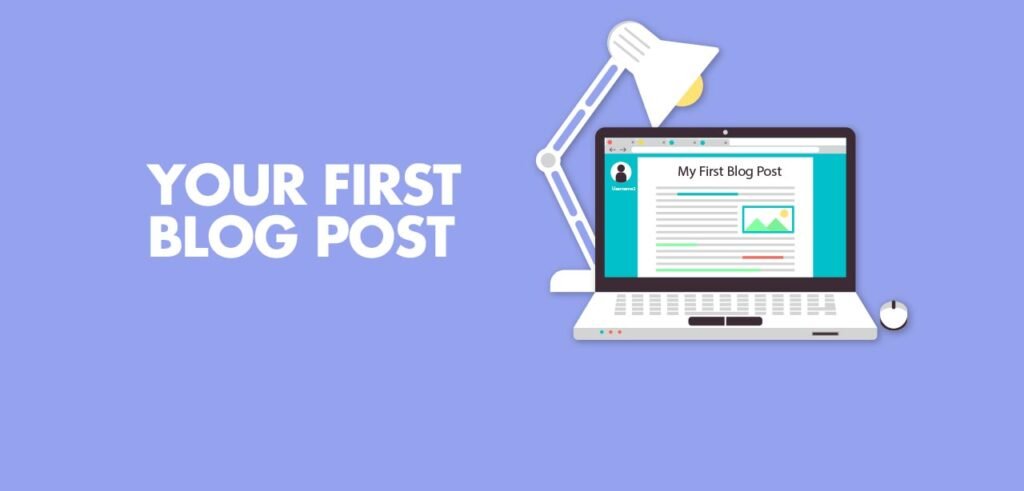
Introduction
In today’s digital age, blogging has become a popular platform for expressing ideas, sharing expertise, and even earning income. If you’re eager to start your own blog but unsure where to begin, this practical guide will walk you through the step-by-step process. From defining your niche to setting up your blog and creating compelling content, we’ll cover every aspect to ensure your blogging journey is both enjoyable and successful.
Table of Contents

Choosing Your Blogging Niche:
Before you start blogging, it’s crucial to identify your niche – a specific area of interest or expertise that your blog will revolve around. Consider your passions, knowledge, and target audience. Research popular niches and narrow down your focus to something you’re genuinely enthusiastic about. This will help you create content that resonates with your audience and keeps you motivated to consistently produce engaging posts.
Selecting the Right Blogging Platform :
There are various blogging platforms available, each with its own features and benefits. WordPress, Blogger, and Wix are popular choices. Research these platforms to determine which one aligns with your technical skills and customization preferences. WordPress, for example, offers flexibility and a wide range of plugins, while Blogger is user-friendly for beginners. Choose a platform that suits your needs and aspirations.
Setting Up Your Blog :
Once you’ve chosen a platform, you’ll need to purchase a domain name (your blog’s web address) and hosting (where your blog’s files will be stored). Follow the platform’s instructions to set up your blog’s appearance, theme, and essential pages like the About and Contact pages. Customize your blog’s design to reflect your personality and niche.
Crafting High-Quality Content:
The heart of your blog lies in the content you create. Research keywords related to your niche and plan your content accordingly. Craft well-researched, informative, and engaging posts. Use headings, subheadings, images, and bullet points to enhance readability. Incorporate your unique voice and perspective to stand out from the crowd. Consistency is key – aim for a regular posting schedule that you can realistically maintain.
Promoting Your Blog :
Even the best content needs promotion to reach a wider audience. Utilize social media platforms, email marketing, and networking to share your posts. Collaborate with other bloggers or influencers in your niche to cross-promote. Engage in relevant online communities and forums to establish your presence and drive traffic to your blog.
Engaging with Your Audience:
Interact with your readers by responding to comments and emails promptly. Encourage discussions and create a sense of community. Ask for feedback and suggestions to improve your blog’s quality. Understanding your audience’s preferences and addressing their needs will build a loyal readership.
Monetizing Your Blog:
If your goal is to earn income from your blog, consider monetization strategies such as affiliate marketing, sponsored posts, selling digital products, or displaying ads. Choose methods that align with your niche and audience. However, remember that monetization shouldn’t compromise the quality and integrity of your content.

Consistency and Growth :
Consistency is crucial in the blogging world. Stick to your posting schedule and continually refine your content based on feedback and analytics. As your blog gains traction, explore opportunities for growth, such as collaborations, guest posting, and expanding into related niches.
Final Tips for Successful Blogging:
- Stay updated with industry trends and adapt your strategies accordingly.
- Invest time in learning about SEO (Search Engine Optimization) to improve your blog’s visibility on search engines.
- Be patient; blogging success takes time. Focus on your passion and dedication.
- Continuously learn and improve your writing, design, and technical skills.
Conclusion:
Starting a blog can be an enriching journey that allows you to share your expertise, connect with like-minded individuals, and potentially earn income. By following this practical guide, you’re equipped with the knowledge to choose the right niche, set up your blog, create compelling content, and engage with your audience effectively. Remember, success in blogging comes from a combination of passion, dedication, and continuous improvement. So, start your blogging adventure today and watch your platform flourish over time.
also readA Comprehensive Guide to Earning Money Through Blogging
FAQ:
1. Why should I start a blog?
Starting a blog offers numerous benefits, including expressing your creativity, sharing your expertise, building an online presence, connecting with like-minded individuals, potential income through monetization, and personal development.
2. Do I need technical skills to start a blog?
While some technical understanding is helpful, it’s not mandatory. Many blogging platforms, like WordPress, offer user-friendly interfaces that require minimal technical knowledge. You can also find tutorials and resources to guide you through the process.
3. How do I choose the right niche for my blog?
Select a niche that aligns with your interests, expertise, and passion. Consider what you enjoy writing about and what value you can provide to your target audience. Researching your niche’s potential audience can help you understand their needs and preferences.
4. What’s the difference between WordPress.com and WordPress.org?
WordPress.com is a hosted platform that offers simplicity and ease of use, but with limited customization. WordPress.org, on the other hand, is self-hosted, allowing for more control, customization, and the use of plugins. It requires a domain name and hosting service.
5. How do I choose the best hosting provider?
Look for hosting providers that offer good uptime, fast loading speeds, strong security features, responsive customer support, and easy integration with WordPress. Read reviews and consider your budget before making a decision.
6. Can I change my blog’s design after launching?
Yes, you can change your blog’s design and theme even after it’s launched. WordPress makes it easy to switch themes without losing your content. Just ensure that the new theme is compatible with your content and customization needs.
7. What’s the ideal length for blog posts?
The ideal length can vary, but generally, blog posts between 1000 to 2000 words tend to perform well. Focus on providing value and addressing the topic thoroughly, rather than fixating on a specific word count.
8. How do I monetize my blog?
There are several ways to monetize your blog, including affiliate marketing, sponsored posts, selling digital products or courses, offering consulting services, and displaying ads through ad networks like Google AdSense.
9. How often should I publish new content?
Consistency is important, but the frequency depends on your availability and content quality. Start with a manageable schedule, such as one post per week, and adjust as needed. It’s better to publish high-quality content less frequently than to rush and compromise quality.
10. How can I drive traffic to my blog?
Promote your blog through social media platforms, engage with your audience, optimize your content for search engines (SEO), guest post on other blogs, collaborate with influencers, and consider using email marketing to keep your readers engaged.
11. Can I track the performance of my blog?
Yes, you can track your blog’s performance using tools like Google Analytics. It provides insights into your traffic sources, user behavior, popular content, and more. Monitoring these metrics can help you make informed decisions to improve your blog.
12. Is it possible to change my blog’s niche in the future?
While it’s possible to change your blog’s niche, it can be challenging, especially if your existing audience is accustomed to a certain type of content. If you’re considering a change, gradually introduce the new content and communicate with your readers about the transition.
Starting a blog is an exciting venture that offers both personal and professional growth. By addressing these common questions, you’ll be better prepared to embark on your blogging journey successfully.





